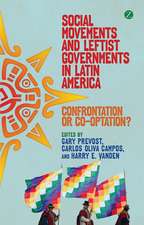Morphogenesis and the Crisis of Normativity: Social Morphogenesis
Editat de Margaret S. Archeren Limba Engleză Hardback – 2 iun 2016
| Toate formatele și edițiile | Preț | Express |
|---|---|---|
| Paperback (1) | 640.71 lei 6-8 săpt. | |
| Springer International Publishing – 30 mai 2018 | 640.71 lei 6-8 săpt. | |
| Hardback (1) | 647.08 lei 6-8 săpt. | |
| Springer International Publishing – 2 iun 2016 | 647.08 lei 6-8 săpt. |
Preț: 647.08 lei
Preț vechi: 761.27 lei
-15% Nou
Puncte Express: 971
Preț estimativ în valută:
123.82€ • 132.41$ • 103.24£
123.82€ • 132.41$ • 103.24£
Carte tipărită la comandă
Livrare economică 18 aprilie-02 mai
Preluare comenzi: 021 569.72.76
Specificații
ISBN-13: 9783319284385
ISBN-10: 331928438X
Pagini: 190
Ilustrații: VIII, 295 p. 9 illus., 3 illus. in color.
Dimensiuni: 155 x 235 x 18 mm
Greutate: 0.6 kg
Ediția:1st ed. 2016
Editura: Springer International Publishing
Colecția Springer
Seria Social Morphogenesis
Locul publicării:Cham, Switzerland
ISBN-10: 331928438X
Pagini: 190
Ilustrații: VIII, 295 p. 9 illus., 3 illus. in color.
Dimensiuni: 155 x 235 x 18 mm
Greutate: 0.6 kg
Ediția:1st ed. 2016
Editura: Springer International Publishing
Colecția Springer
Seria Social Morphogenesis
Locul publicării:Cham, Switzerland
Public țintă
ResearchCuprins
Chapter 1. Introduction: Does Social Morphogenesis Threaten the Rule of Law; Margaret S. Archer.- Part I. The Great Normative Transformations.- Chapter 2. The Great Normative Changes in the Twentieth Century; Douglas V. Porpora.- Chapter 3. Reflexive Secularity: Thoughts on the Reflexive Imperative in a Secular Age; Philip Gorski.- Chapter 4. Emergence, Development and Death: Norms in International Society; Colin Wight.- Chapter 5. The Normative Texture of Morphogenic Society: Tensions, Challenges and Strategies; Andrea Maccarini.- Part II. Morphogenesis and the Decline of Normative Consensus.- Chapter 6. In letter and In Spirit: Social Morphogenesis and the Interpretation of Codified Social Rules; Ismael Al-Amoudi.- Chapter 7. Anormative Social Regulation: The Attempt to Cope with Social Morphogenesis; Margaret S. Archer.- Chapter 8. Joint ‘Anormative’ Regulation from Status to Inconsistency; A Multilevel Spinning Top Model of Specialized Institutionalization; Emmanuel Lazega.- Chapter 9. The Fragile Social Movements of Late Modernity; Mark Carrigan.- Part III. Morphogenesis and What Makes for Change in Normativity.- Chapter 10. The Relational Understanding of the Origin and Morphogenetic Change of Social Morality; Pierpaolo Donati.- Chapter 11. Collective Practices and Norms; Tony Lawson.- Chapter 12. Ethics from Systems: Origin, Development and Current State of Normativity; Wolfgang Hofkirchner.
Notă biografică
Margaret Archer heads the project at EPFL 'From Modernity to Morphogenesis'. She was elected as the first woman President of the International Sociological Association at the 12th World Congress of Sociology. She is a founder member of both the Pontifical Academy of Social Sciences and the Academy of Learned Societies in the Social Sciences and is a trustee of the Centre for Critical Realism. She studied at the University of London, graduating B.Sc. in 1964 and Ph.D. in 1967 with a thesis on The Educational Aspirations of English Working Class Parents. She was a lecturer at the University of Reading from 1966 to 1973. She is one of the most influential theorists in the critical realist tradition. At the 12th World Congress of Sociology, she was elected as the first woman President of the International Sociological Association, is a founder member of both the Pontifical Academy of Social Sciences and the Academy of Learned Societies in the Social Sciences. She is a Trustee of the Centrefor Critical Realism.
Textul de pe ultima copertă
This volume explores the development and consequences of morphogenesis on normative regulation. It starts out by describing the great normative transformations from morphostasis, as the precondition of a harmonious relationship between legal validity and normative consensus in society, to morphogenesis, which tends to strongly undermine existing laws, norms, rules, rights and obligations because of the new variety it introduces. Next, it studies the decline of normative consensus resulting from the changes in the social contexts that made previous forms of normativity, based upon ‘habits, ‘habit us’ and ‘routine action’, unhelpfully misleading because they no longer constituted relevant guidelines to action. It shows how this led to the ‘Reflexive Imperative’ with subjects having to work out their own purposeful actions in relation to their objective social circumstances and their personal concerns, if they were to be active rather than passive agents. Finally, the book analyses what makes for chance in normativity, and what will underwrite future social regulation. It discusses whether it is possible to establish a new corpus of laws, norms and rules, given that intense morphogenesis denies the durability of any new stable context.
Caracteristici
Explores the development and consequences of morphogenesis on normative regulation Clarifies the existence of 'Reflexive Imperative’ Discusses the possibility to establish a new corpus of laws, norms and rules in society Includes supplementary material: sn.pub/extras





















